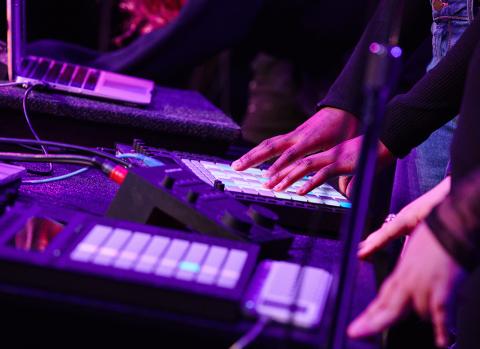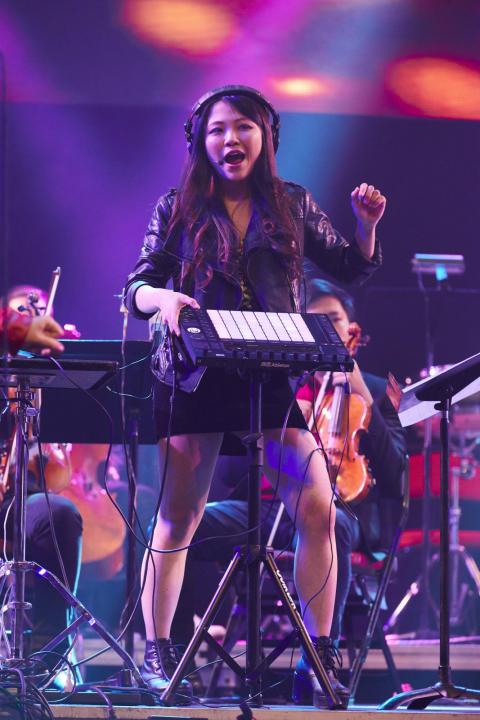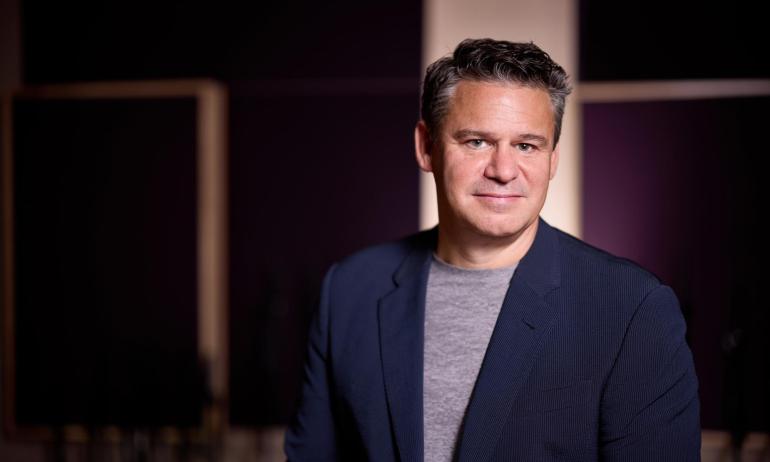Berklee’s EDI Students Prepare for Next Generation of Performance

Image by Dave Green
Despite being only a year old and having to weather the pandemic, Berklee’s electronic digital instrument (EDI) program launched its third semester last week with almost three times as many students as the inaugural class had last fall. And while all 31 of these EDI principals deal with many of the same challenges as do other instrumentalists, in some ways they are well-suited to the moment.
“I think the advantage that our students have is that they come into this [semester] already being producers. So, in other words, for them to distribute a piece of work that they're doing, they're already kind of geared towards doing that,” said Michael Bierylo, head of the EDI program and chair of the Electronic Production and Design (EPD) Department. That skill, in a remote semester in which every student is having to record and produce themselves to some degree, is indispensable.
Another advantage is that EDIs are portable, often consisting of a grid controller and/or keyboard, making them easy to set up at home. On the other hand, one struggle for EDI students this semester is that they only have their rig to work on, and can’t experiment with the myriad electronic instruments the college normally makes available to them—an issue that Richard Boulanger, a professor in the Music Production and Engineering Department, has dealt with by teaching students how to make their own gear.
A New Concert Hall
But perhaps the biggest difference this semester is that students might be getting a sneak peak of the industry to come.
“The engineering that these students bring, when they're graduating, is probably going to be exactly the DNA of the industry going forward. It's not going to be people like myself where we had touring careers,” said Daedelus, an assistant professor in the EPD Department. “It's going to be an incredible opportunity to set the tone. These early EDI students are going to determine a lot for all of us.”
"Of all the segments of the industry, which are really suffering right now, a lot of electronic music is just kind of forging on."
—Daedelus
Streaming events, Daedelus said, are still in their infancy as virtual reality and artificial reality events start to come online. “It's like playing like Atari versus the latest PS5 (PlayStation 5) offering,” they said, comparing the current moment to the future the industry is speeding toward. “It's going to change really quickly. I mean, you can see it's happening.”
This change could include touring events that are individually ticketed for certain time zones, but “you have to have a series of performers that are used to that new concert hall,” Daedelus said, adding that, in fact, the virtual performance space is already rapidly adapting to the new environment. “A lot of raves and festivals are...just continuing as if nothing happened on places like Twitch…. It's kind of interesting how out of all the segments of the industry, which are really suffering right now, a lot of electronic music is just kind of forging on.”
One game changer, Bierylo said, will likely be the rollout of 5G internet, which has download speeds that are about 100 times faster than current iteration of the internet. “I think when 5G kicks in, and 5G kicks in a big way, I think we’re going to see a quantum leap in network capabilities,” he said.
To prepare students for a future of performance that can be either online or in-person, EDI instructors will teach them how to tailor a performance for a variety of spaces, from an amphitheater, where they can react to crowd, to a living room, where they’ll need to “get that kind of excitement or get the feedback when [they’re] not directly present with the audience,” Daedelus said.

Claire Lim performs at the 2018 Berklee commencement concert.
One of the instructors that will teach these skills is Claire Lim, who started work last week. Since graduating from Berklee in 2018 with a double major in EPD and professional music, Lim (also known as the artist dolltr!ck) has been based in New York City, building a career as a performer and teacher. “[She] had a lot to do with the DNA of the program, was this really inspirational figure at Berklee, and really pursued electronic performance,” Daedelus said.
Lim has been “super entrepreneurial in her career,” Bierylo said. And it’s just this spirit that the program wants to cultivate in EDI students. “It's just being flexible, and being able to reinvent yourself and who you are and what you do. And I think that's true for all musicians,” he said.




